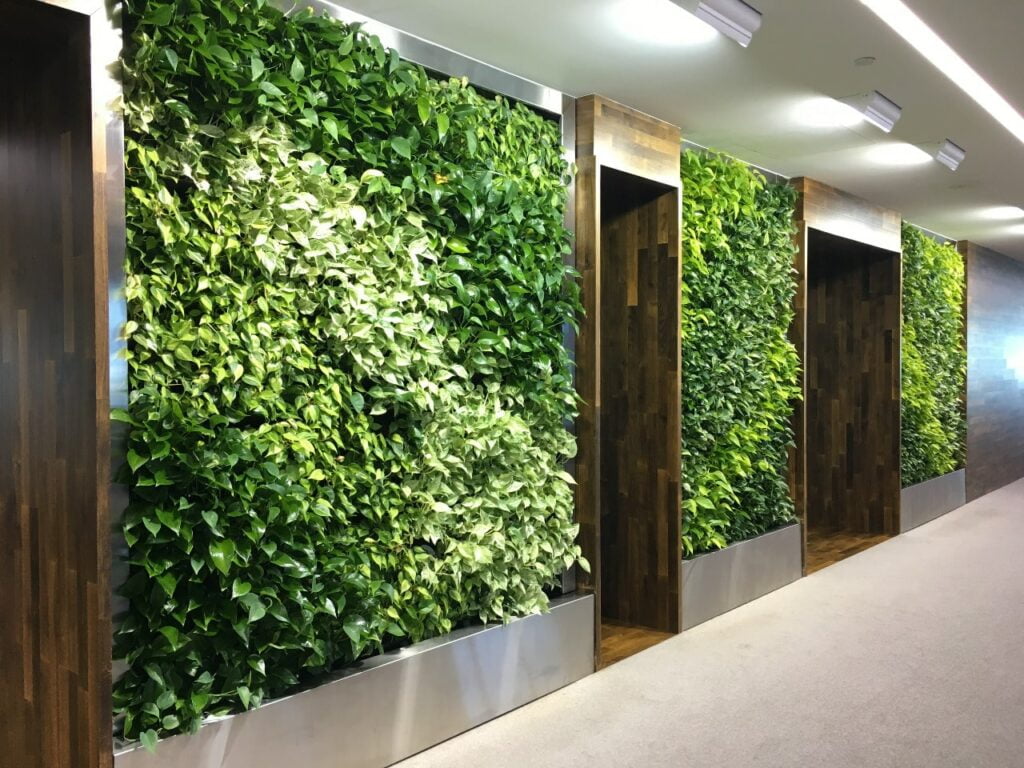Adding plants to buildings and rooms makes any area come alive, be it a warm house or a lively office in San Francisco. It not only brings a bit of the outdoors inside but also betters the air we breathe and lifts the spirits of everyone there. This guide gives easy advice for architects and interior designers on mixing plants into their work, aiming to make spaces that feel good and fresh.
Understanding The Basics of Plant Integration
Choosing The Right Plants
When selecting plants for your design, consider the environment and the care the plants will need. Choose plants that grow well inside with little sunlight to make sure they last long and are easy to take care of.
Considering The Space
Evaluate the space available. Large, open areas like lobbies might benefit from bigger, statement plants, while smaller spaces can be enhanced with smaller potted plants or hanging greenery.
Strategic Placement for Maximum Impact
Enhancing Workspaces
Incorporate greenery into office designs to improve focus and productivity. An indoor office plant design in San Francisco offices, for instance, can include desk plants for personal spaces and larger communal plants for shaded areas.
Creating Relaxing Environments
Use plants to create a feeling of relaxation in areas meant for rest, such as lounges or reading nooks. Soft-textured foliage and calming green tones can help achieve this effect.
Combining Functionality With Aesthetics
Air Purifying Plants
Select plants known for their air-purifying qualities. These not only make a place look better but also help make the air inside healthier.
Using Plants as Dividers
Plants can serve as natural dividers in open-plan spaces, offering a soft separation without the need for walls or partitions. This strategy keeps a space feeling open while marking out distinct zones.
Maintenance and Long-Term Considerations
Easy-Care Options
For low-maintenance designs, choose plants that require minimal care. Succulents, snake plants, and ZZ plants are great choices for busy spaces or for clients who prefer not to spend too much time on upkeep.
Seasonal Changes
Be mindful of seasonal changes and how they might affect indoor plants. Some may need more light during certain times of the year or may go dormant in colder months.
Green Spaces: The Art of Integrating Plants into Architecture and Interior Design
Adding plants to architecture and room designs goes beyond just making things look pretty; it’s about making spaces that are healthier and more welcoming. By learning the simple parts, smartly setting plants for the best impact, and mixing usefulness with beauty, architects and interior designers can really improve any area.
Keep in mind, the main thing is to pick the right plants for the setting and take good care of them so they flourish and keep adding value to the space. Indoor office plant design in San Francisco, as with anywhere, can transform an ordinary office into a vibrant, productive, and serene workspace.
However, maintaining healthy, vibrant plants in a professional setting can be a challenge without the right expertise. This is where The Wright Gardner comes in. Our team focuses on indoor office plant design in San Francisco, delivering a full service that includes picking the ideal plants for your area and making sure they stay lovely and in good health all year.
Make the smart choice for your architectural or interior design project. Reach out to The Wright Gardner today, and bring the unmatched beauty and benefits of well-maintained indoor plants to your designs. Change your areas into nature-filled havens where creativity and productivity bloom. Contact The Wright Gardner now to see how we can bring your green visions to life!

